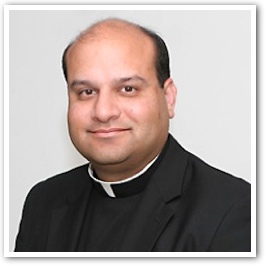Christians should support all liberties, not just religious liberty
- FATHER RAYMOND J. DE SOUZA
Religious, personal and economic freedom are of a piece. Christians should support them all.
 |
As we mark the 25th anniversary this year of the defeat of communism, there are new questions about the unity of liberties. In the 1980s, when in the Gdansk shipyard the workers began to rattle the cage of communism, they demanded economic liberties (free trade unions), personal liberties (speech, the press), political liberties (democracy), legal liberties (against the police state) and religious liberty (the strikers insisted upon public worship in the shipyard itself ).
In continuity with older revolutions and even older political philosophy, the liberties demanded were thought to be all of a piece. Liberty was not divisible, it was thought and often said. Today that question is up for debate.
Founded in 1990, the Acton Institute took its name from Lord Acton, the 19th-century advocate for liberty. For many years now I have been coming to Grand Rapids for what the institute calls its annual week-long "university." "Acton U" is now a gathering of over a thousand participants to study the question of liberty from the perspective of faith.
The institute originally focused on economic questions. Specifically, was economic liberty akin to those liberties widely considered good for human flourishing and the common good — freedom of religion, freedom of speech, legal protections against the prosecutorial state? And a further question of a more theological nature: All religious traditions have a strong emphasis on the generous sharing of goods and material care for the poor and the suffering, but do they also offer an account of economic freedom, creativity and productivity serving both the poor and the common good?
Today, when religious persecution, even massacres, are on the rise around the world and religious liberty is eroding in the democratic countries, religious believers have to ask themselves whether they should be concerned for the unity of liberty, or focus their energies on defending religious liberty alone.
The esteemed Catholic theologian of the free society, Michael Novak, is here this week. Novak argues that religious liberty is the first liberty, for if you do not have the freedom to believe what you will about ultimate questions, or the freedom to order your relationship to God, then what other freedoms are possible? If his inner sanctuary is violated, none of the other things man does and has are safe.
Novak argues that economic liberty is the "second liberty." It is not more important in principle than freedom of the press, but in practice it may be. Not everyone has something to say in public all the time; everyone engages in economic activity every day. If you wish to have a culture of liberty, economic liberty is worth paying attention to.
If his inner sanctuary is violated, none of the other things man does and has are safe. |
"Once you grant more liberty in one area, it is hard to stop freedom from spreading to other spheres of life," argues Samuel Gregg, Acton's director of research. "Economic liberty, for instance, requires and encourages people to think and choose freely. Without this, entrepreneurship and free exchange are impossible. It is, however, difficult to limit this reflection and choosing to economic questions. People start asking social questions, political questions, and, yes, religious questions."
In a week in which religious massacres have taken place in both Iraq and Kenya, it is tempting for believers to give urgent priority to the primacy of religious liberty. Gregg and his colleagues here, not only in Grand Rapids this week but in a series of conferences in various world capitals, are encouraging their fellow believers to argue for the expanse of all liberties.
For example, Gregg argues that in authoritarian regimes such as China, expanding economic liberties can be a prelude to a greater demand for religious liberties. That remains to be tested, though there is evidence that China's economic liberalization has produced a more intense religious practice in the Chinese population.
Stepping away from the immediate headlines, one detects a broad array of threats to a culture of liberty: Privacy is trampled in the name of public safety, the national security state abridges the fairness and justice of the criminal law, the financial crisis spawns aggressive regulation, identity politics constrains religious liberties.
Religious believers understandably can become preoccupied with their own priorities. They ought not lose light of the larger battle. The unity of liberties belongs to all.
 This is Meaghen Gonzalez, Editor of CERC. I hope you appreciated this piece. We curate these articles especially for believers like you.
This is Meaghen Gonzalez, Editor of CERC. I hope you appreciated this piece. We curate these articles especially for believers like you.
Please show your appreciation by making a $3 donation. CERC is entirely reader supported.

Acknowledgement
Father Raymond J. de Souza, "Christians should support all liberties, not just religious liberty." National Post, (Canada) June 19, 2014.
Reprinted with permission of the National Post and Fr. de Souza.
The Author
Father Raymond J. de Souza is the founding editor of Convivium magazine.
Copyright © 2014 National Post



